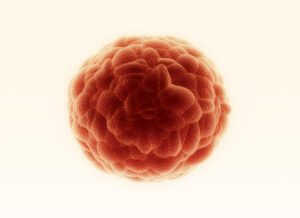 It is important to identify cancer as early as possible in order to effectively combat its effects on the host.
It is important to identify cancer as early as possible in order to effectively combat its effects on the host.
The University of Illinois has been working for many years on early detection screening methods for cancer in order to help treat cancer patients with very aggressive types of cancer. It is critical to catch and treat all cancers in the earliest stage possible but this is especially critical concerning cancers such as pancreatic, hepatic and lung. The University found that the pig was the better model to help develop these screening tests because they are so anatomically similar to humans.
Researchers at The University of Illinois are able to induce cancer tumors that would be extremely similar to human cancer tumors. The pigs (“The Oncopig Model”) are genetically altered in order to allow the researchers to trigger certain types of tumors with a specific enzyme and monitor the animals for any increased levels that would cue them in to the cancer at an early stage.
Individual tissues and cells can be targeted specifically which allows the researchers to very closely monitor the cancer location within the animal. Acoustic MedSystems (AMS) has developed several devices for treatment of cancer tumors in a minimally invasive, image guided method. They have teamed up with The University of Illinois to use the “oncopig” to develop their cancer detection screening procedures. AMS is working with U of I to help test a new ultrasound therapy that they have developed.
This is a very important stride in helping to treat cancer patients as early as possible and gain the best possible outcome for the patient.
In the past, we’ve discussed how porcine tissue can help researchers uncover new information about Marfan syndrome.
Animal Biotech is proud to assist researchers in this kind of work. For over 25 years, we have helped the biomedical research community by supplying it with post-mortem tissues, as well as information and consultation. Contact us today to find out how we can assist you in your work.


